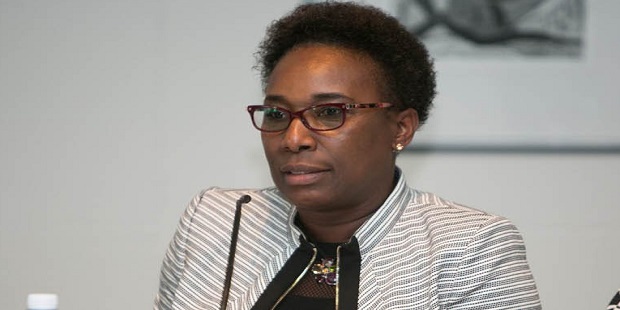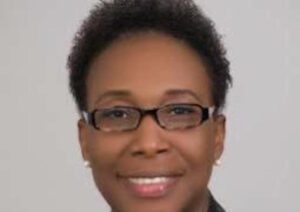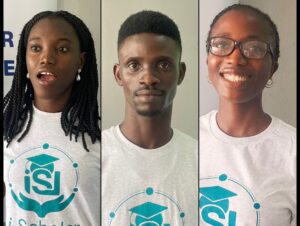
Excerpts from Vanguard’s Adesina Wahab interview with Mrs. Tolulope Ewherido, who chairs the Board of Trustees of the i-Scholar Initiative (iSI), a nonprofit organization that mentors and connects high-potential African students to fully funded graduate programs at top global universities. Mrs. Ewherido leads a team of other board members in providing strategic direction for the iSI mission. iSI has empowered and placed over 250 young and bright Nigerians at world-class universities in the USA and worldwide. Over 80% of these young scholars are currently running graduate programs in STEM, including geosciences. She speaks about what ISI has achieved in the last few years.
Since the inauguration of the i-scholar initiative in 2019, how would you describe the impact on the students? What feedback do you get?
Ewherido: Since 2019, our focus has primarily been in Nigeria, achieving an impressive 5X growth in sponsorships within the first four years. With an investment of about $160,000, we’ve sponsored over 255 scholars, accessing scholarships totaling over $25 million.
Nigeria has an abundance of talents with the potential to drive economic innovation and transformation. A testament to this is the significant impact Nigerians are making in academia, industries, and businesses in Nigeria, Africa and across the globe.
However, a notable challenge exists – access to global education that can further drive innovation and higher economic outcomes has narrowed over time to mostly individuals who are financially privileged. iSI is creating a bridge, …we are catalysts, that say our scholars’ dreams of higher education and better economic attainment are as valid as those of individuals who come from more privileged backgrounds, and we are dedicated to helping them realize these dreams.
The benefits of our efforts extend in multiple directions – to the individual, their communities, and Nigeria as a whole. Beyond the immeasurable, compounding economic advantages that uplift families and communities, there are tangible, measurable impacts. The success stories of our scholars speak for themselves. Here are three examples, in their own words…
Ayomide Akande (First-Class B.Sc. Chemistry, fully funded PhD in Chemistry, Canada.): It is really beyond just getting funded for my GRE. The proximity and access to our sponsors, the advice, the regular encouraging words and even the networking among fellow scholars makes ISI different from similar initiatives. I had access to mentors and met remarkable people that gingered me to achieve my dreams.
Abdulwaris Ajagunjeun, (First-Class B.Sc. Geology, fully funded MSc. in Petroleum Geoscience, UAE): My GRE and TOEFL exams were sponsored by iSI, but iSI has transcended mere sponsorship – it was a supportive family during a crucial time in my life journey. The firsthand information, mentorship, and support from iSI, from mentors and fellow scholars, played a significant role in turning my aspirations into reality. Finally, the indigent boy is achieving his dreams. iSI is not just an organization; it’s a community of motivated individuals who instill hope and reassure you that the goodness you’ve been waiting for is on its way. Indeed, iSI is the best.
Emenike Goodluck (First-Class B.Sc Electrical & Electronics Engineering, fully funded PhD in Systems Engineering, USA): In 2019, I stumbled upon the i-Scholars Initiative (iSI), an unfamiliar concept where someone beyond my family could sponsor my GRE/TOEFL tests. The idea of a stranger investing in my dreams felt surreal. Despite the skepticism I applied with a “nothing to lose” mindset. To my astonishment, I received the iSI scholarship in September 2019—$220 for GRE, $195 for TOEFL, and an additional $70 for test materials. As I prepared for the tests, iSI provided more than financial aid—valuable advisory services, networking, and mentorship. As a youth corps member in Plateau State earning less than $50/month, this financial and moral support was a huge beacon of hope to continue the struggle. I extend heartfelt gratitude to the generous sponsors and visionaries behind the i-Scholars Initiative. Your benevolence and commitment to the success of young Nigerian scholars is creating a positive change with tremendous impact.
How have you been able to leverage the network of partners to ensure that students from less privileged background get scholarships?
Ewherido: Our Partners are volunteers and donors who support with their time and money. iSI Partners serve as the lifeblood of our organization, providing vital support on various fronts. Financially, their contributions play a crucial role, covering multiple tests, application fees, and offering loans for flights and initial settling expenses for each scholar. Beyond financial aid, our partners contribute immeasurable support through their time and passion. With over 300 accomplished partners globally, our network is a testament to the collaborative spirit that drives our mission.
These dedicated individuals volunteer their expertise in reviewing applications, participating in scholar selection, hosting webinars, and providing valuable assistance in interview preparation for visas and universities. Their commitment extends to one-on-one mentoring throughout the entire application process and continues even after scholars have embarked on their graduate programmes. Our partners truly embody the spirit of collaboration and mentorship, making a significant impact on the success of our scholars.
What is your view about ‘Japa’ syndrome?
Ewherido: The phenomenon of “Japa” is a natural response to individuals seeking opportunities beyond what is currently available to them in Nigeria, with the aim of improving their own lives and the lives of their families. This inclination aligns with Maslow’s hierarchy of needs, where the motivation for change is driven by unmet basic human needs. Nigeria has the largest population of youth in the world, about 70% of Nigeria’s population of greater than 200 Million people is under 30 years , and 42% is under the age of 15. Rather than opposing the trend of “Japa,” our focus should be on expanding opportunities for Nigerian youth to thrive – within the country and abroad. In 2022, remittances from Nigerians living abroad amounted to approximately $20 billion, constituting about 4% of Nigeria’s GDP.
To put this in perspective, the oil sector, a significant contributor to GDP, accounted for approximately 6% in the same year. This highlights the substantial contribution of Nigerians, both within and outside the country, to our national growth. iSI plays a crucial role in reshaping individual economic trajectories, and enabling more Nigerians to contribute to the leadership, innovation, and overall development of the nation—whether they are in Nigeria or part of the Diaspora.
For the Nigerian students who have gone through the programme, how do you encourage them to come back and contribute to the development of the country?
Ewherido: Let’s dispel the notion that contributing to a country’s development is contingent solely on physical presence within its borders. This belief is a false ideology. While it’s crucial to have a workforce propelling the economy from within, the responsibility to foster this lies with the government, private enterprises, and public entities. National development also necessitates a segment of the population equipped with the right knowledge and higher education both home and abroad to drive innovation and transformation. This is a proven strategy, as exemplified by the success story of India, which has evolved into a leading global innovation hub and one of the fastest-growing economies. Indians in Diaspora have contributed greatly in driving investments and developments back into India to grow their GDP. Our vision at iSI is crystal clear: through education and opportunities, we aim to be a catalyst for positive change, nurturing a more prosperous and vibrant Nigeria. Every iSI scholar intimately understands and embraces this vision. They recognize that their success is intricately linked to Nigeria’s success. Our scholars are already demonstrating this commitment by actively managing key operations within iSI, sharing valuable resources like “The i-Scholar Guide: Your Grad School Journey Compass” for free to assist others, making meaningful financial contributions to their families and enhancing access to education within their communities at home. I take pride in the fact that our scholars not only own the vision to transform Nigeria but are also actively working to replicate their success, fostering a positive ripple effects for the nation.
What would say is the value of mentoring to a scholar?
Ewherido: The journey of our scholars is undeniably challenging, extending beyond the realm of finances into the emotional terrain. The unwavering belief in oneself and the vast possibilities they hold constitutes a significant aspect of the iSI mentoring programme; we provide crucial motivation and fuel that propels our scholars to persist in pursuing their dreams. Our mentors play an indispensable role in this journey. They serve as more than just guides; they act as a reliable sounding board, a potent source of motivation, and a trusted advisor. Throughout the entire trajectory – before, during, and after their graduate studies. By fostering a robust mentorship programme, we not only assist our scholars in overcoming immediate challenges but also empower them to navigate the complexities of their academic and professional journeys. The emotional support and encouragement provided by our mentors play a transformative role in shaping the trajectory of our scholars’ lives, ensuring they emerge from their educational pursuits stronger, more resilient, and well-prepared to contribute meaningfully to their communities and Nigeria as a whole.

What is your expectations for this year in terms of getting more students on board to study STEM related courses?
Ewherido: Recognizing the pivotal role of a STEM foundation in driving innovation and development, iSI has remained steadfast in its commitment to growing the STEM pipeline. In our initial stages, over 90% of our scholars were dedicated to STEM disciplines. However, there is a profound acknowledgment that sustainable development demands a holistic approach, extending beyond STEM skills. It necessitates a diverse pool of individuals skilled in humanities, arts, and business fields. In alignment with this, iSI has strategically diversified its current scholar pool to encompass a broader range of disciplines. By doing so, we aim to create a well-rounded and versatile group of individuals who can contribute not only to technological advancements but also to the multifaceted aspects of sustainable development. This inclusive approach ensures that our scholars, equipped with a spectrum of skills and expertise, are prepared to address the complex challenges and opportunities in various fields, fostering a more comprehensive and impactful contribution to the development of Nigeria and beyond.
What is your advice to the Nigerian government in terms of bridging the education gap between the poor and the rich?
Ewherido: There was a time in Nigeria when individuals from humble or poor backgrounds could gain quality education, get a decent job or run businesses, have a fulfilling quality of life and attain the highest echelons of leadership across the society. While the potential for such success still exists, the pathways have become increasingly limited, often accessible only to the privileged few.
Addressing this issue is crucial for the overall growth of our nation, and it is a challenge that requires attention from the government. The primary solution lies in enhancing access to quality education and scholarships for higher education. By allocating more funding to this critical area, we can break down barriers that currently hinder talented individuals from underprivileged backgrounds. Talent should not be limited by access otherwise we run the risk of stunting the growth of our nation. Additionally, drastically improving the education infrastructure and prioritizing the training and fair compensation of teachers and lecturers is essential. Educators play a pivotal role in shaping the future, and by investing in their development, we ensure a higher standard of education that can empower students from all walks of life. Finally, creating a larger pipeline of higher-paying jobs is imperative. This not only addresses immediate economic concerns but also provides a crucial steppingstone for youth to achieve improved economic and leadership outcomes. Focusing on these key areas – education accessibility, enhancement of enabling infrastructure, teacher training, and job creation – can pave the way for a more inclusive and prosperous future for all, unlocking the full potential of Nigeria’s diverse talent pool.
How would you compare learning abroad with learning in Nigeria and its attendant impact of culture erosion?
Ewherido: You’ve highlighted a nuanced and important aspect of the Diaspora experience. Contrary to the notion that being in the Diaspora leads to a diminished connection with Nigerian culture, Nigerians abroad often experience a strengthened bond with their cultural roots. In fact, Nigerian culture becomes a defining and integral part of their identity, contributing to a more profound sense of self. This phenomenon highlights the positive impact of Diasporans as cultural ambassadors. Rather than eroding their Nigerian identity, they actively contribute to the elevation of Nigerian culture on the global stage. Through their experiences, Diasporans become advocates for Nigeria, shaping a positive perception of the country and its people internationally. As such, it’s crucial to recognize that both learning experiences – within Nigeria and abroad – play complementary roles in promoting and preserving our rich cultural heritage.
Credits:
This article was originally published in Vanguard, a Nigerian national daily newspaper.


